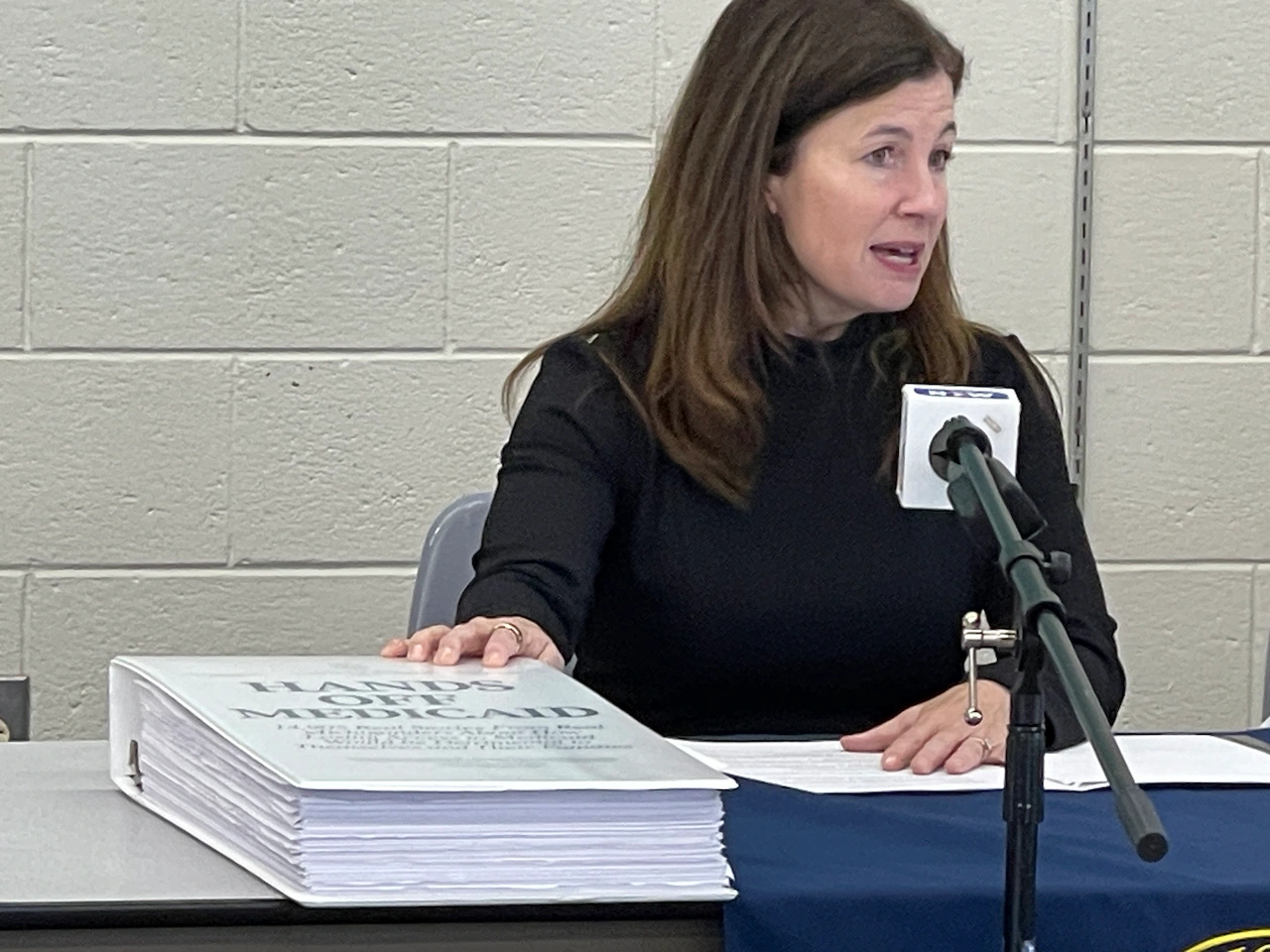Copyright M Live Michigan

MUNDY TWP., MI — Two things happened to U.S. Rep. Kristen McDonald Rivet during the weekend that drove home the fallout from the federal government shutdown and uncertainty about future SNAP benefits. First, the congresswoman spent the weekend at food distribution centers in the 8th Congressional District, where demand for food is already outpacing supply as funding for the Supplemental Nutrition Assistance Program ran dry. Then she went shopping for her own groceries, seeing the high price of food for every shopper in the check-out line. “The cost of food in this country has gotten so expensive, and we just have not kept up with that,” McDonald Rivet said. “At a bare minimum, we need to make sure the most vulnerable among us have access to food.” President Donald Trump’s administration said Monday, Nov. 3, that it will partially fund SNAP after two judges’ rulings required it to keep the food aid program running. The administration said that an emergency fund it will use has $4.65 billion — only enough to cover about half the normal benefits this month. The U.S. Department of Agriculture had planned to freeze SNAP payments starting Saturday, Nov. 1, due to the shutdown. The program serves about one in eight Americans. In Genesee County, the number is closer to two in eight. According to Michigan Attorney General Dana Nessel, it is not yet known how much Michigan beneficiaries will receive. It will be at least a few days before any benefits are received, she said. The pause in SNAP benefits has flooded food pantries and distribution sites with requests for help across the state and country. In Flint and Genessee County, it has spurred officials to make plans to help provide supplemental food on at least a short-term basis. McDonald Rivet, D-Bay City, said Monday that the Trump administration’s move to restore some food assistance without resolving the shutdown is “another example of this (program) being a political tool.” “This is about whether people eat ...,” she said. “You don’t use that as a bargaining chip.” The congresswoman spoke about SNAP Monday at a roundtable event at the Vocational Independence Program in Mundy Township. The event, held to mark the beginning of the Affordable Care Act open enrollment period, was addressing an issue that has led to the pause in SNAP benefits. Tax credits for people who get health insurance through the marketplaces created by the ACA, also known as Obamacare, are set to expire at the end of the year, which will send premium prices much higher. Democrats have said they won’t vote to reopen the government until Republicans negotiate an extension of the expanded subsidies. Republicans say they won’t negotiate until Democrats vote to reopen the government. In the meantime, people enrolled in the plans are already being notified of potential premium increases for 2026. Jessica Brown, owner of Wayfinder Travel Group in Davison, stated at the roundtable that the monthly premium for herself and one child stands to increase from $450 to $950. “Do I even continue coverage or just try to save monthly for things that might come up?” Brown asked. “If that’s the case, I’m also probably not going to do the mammogram and the colonoscopy that I just had — that was covered — and different things because you just can’t afford it.” “I’m a small business owner,” she said. “Doubling your cost is just not something you can absorb.” Panelists at Monday’s event also said the federal government needs to reverse Medicaid cuts enacted this summer. More than 71 million people rely on Medicaid, and Dr. Aisha Harris said cuts to the program and the loss of subsidies through the ACA spell big problems. “When people can’t afford their health care, they just go uninsured ...,” Harris said. “It’s not a really pretty picture. “I don’t want to scare people, but the reality is, people will die ... That doesn’t make any sense when we talk about how great America is.”



